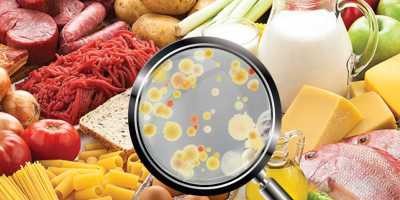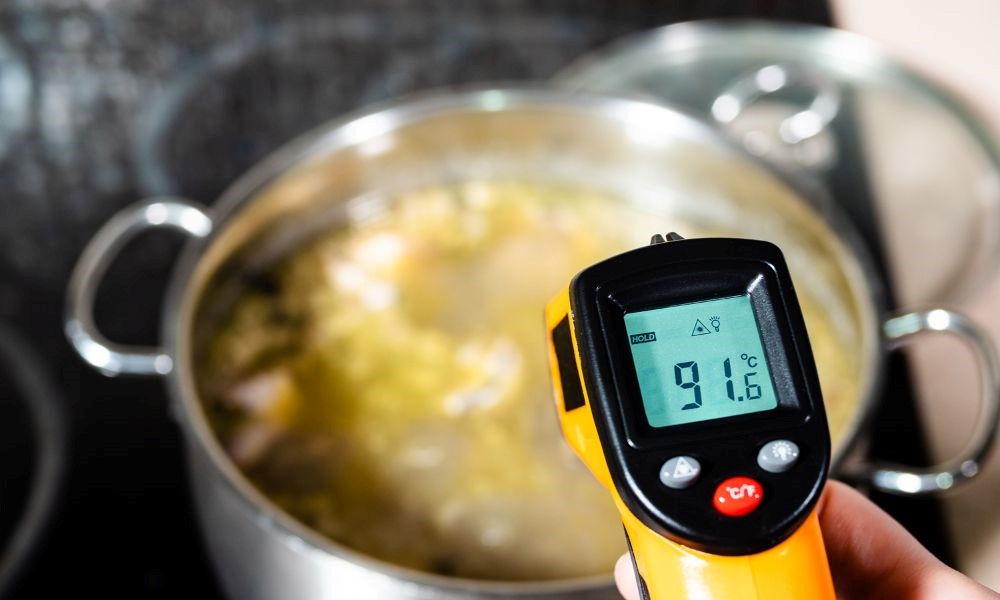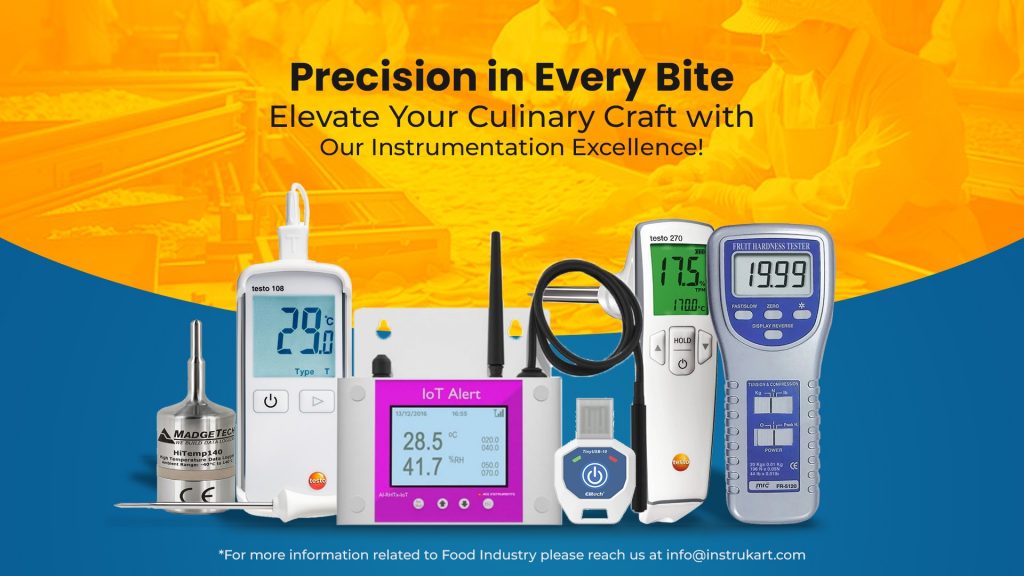Food contamination is a serious problem that can have a devastating impact on public health. In recent years, there have been a number of high-profile food-borne illness outbreaks, such as the 2011 E. coli outbreak linked to spinach and the 2016 listeria outbreak linked to cantaloupe. These outbreaks have raised awareness of the risks of food contamination and have led to calls for stricter food safety regulations.
There are several ways that food can become contaminated. Some of the most common causes of food contamination include:
Microorganisms: Bacteria, viruses, and parasites can all cause food borne illness. These microorganisms can be found in soil, water, animals, and even humans. They can contaminate food at any stage of production, from harvesting to processing to preparation.
Chemicals: Pesticides, fertilizers, and other chemicals can also contaminate food. These chemicals can be found in the soil or water where food is grown, or they can be used during processing.
Physical contaminants: Metal shavings, glass, plastic, and other foreign objects can also contaminate food. These objects can be introduced into food during processing or packaging.
The consequences of food contamination can be serious. Food borne illness can cause a range of symptoms, from mild stomach upset to life-threatening illness. In some cases, food borne illness can even be fatal.
In addition to the health risks, food contamination can also have a significant economic impact. Food borne illness outbreaks can lead to recalls, product liability lawsuits, and lost sales.
The food industry is taking steps to address the problem of food contamination. These steps include:
Implementing stricter food safety regulations: Governments around the world are tightening food safety regulations in an effort to reduce the risk of food borne illness.
Developing new technologies: Researchers are developing new technologies to help prevent food contamination. These technologies include methods for detecting and removing microorganisms from food, as well as methods for preventing the growth of microorganisms in food.
Educating consumers: Consumers need to be aware of the risks of food contamination and how to prevent it. This includes washing hands thoroughly before handling food, cooking food to the proper temperature, and avoiding foods that have been recalled.
The problem of food contamination is complex, but there are a number of things that can be done to address it. By implementing stricter regulations, developing new technologies, and educating consumers, we can help to reduce the risk of food borne illness and protect public health.

Food contamination is a major issue that can cause food borne illness and other health problems. There are three main types of food contamination: biological, chemical, and physical.
How Temperatures Affect Food:
Temperature affects the growth of microorganisms, such as bacteria, viruses, and molds. These microorganisms can cause forborne illness, so it is important to keep food at safe temperatures.
Chemical reactions: Temperature can also affect chemical reactions in food. For example, the browning of fruits and vegetables is caused by a chemical reaction that is accelerated by heat.
Physical properties: Temperature can also affect the physical properties of food, such as its texture, color, and flavor. For example, freezing food can make it harder and less flavorful.
Storage stability: Temperature can also affect the storage stability of food. For example, food that is stored at a high temperature will spoil more quickly than food that is stored at a lower temperature.
Here are some specific examples of how temperature affects food:
- Bacterial growth: Bacteria grow best in the temperature danger zone, which is between 40 and 140 degrees Fahrenheit. This is why it is important to keep food out of the “danger zone” for as short a time as possible.
- Enzyme activity: Enzymes are proteins that can cause food to spoil. Enzyme activity is slowed down by cold temperatures, so freezing food can help to preserve it.
- Browning: The browning of fruits and vegetables is caused by a chemical reaction called the Maillard reaction. This reaction is accelerated by heat, so cooked fruits and vegetables will brown more quickly than raw fruits and vegetables.
- Texture: The texture of food can also be affected by temperature. For example, freezing food can make it harder and less tender.
- Storage stability: The storage stability of food can also be affected by temperature. For example, food that is stored at a high temperature will spoil more quickly than food that is stored at a lower temperature.

Cold Storage Temperatures::
Freezing
- 0°F: Freezing keeps food safe by slowing the movement of molecules, causing bacteria to enter a dormant stage.
- Thawing: Once thawed, these bacteria can again become active and multiply to levels that may lead to foodborne illness.
- Thawed foods: Thawed foods should be handled as any other perishable food.
Refrigeration
- 40°F: Perishable foods will gradually spoil in the refrigerator.
- Spoilage bacteria: Spoilage bacteria will make themselves known in a variety of ways, such as an uncharacteristic odor, color, or becoming sticky or slimy.
- Molds: Molds may also grow and become visible.
- Bacteria capable of causing foodborne illness: Bacteria capable of causing foodborne illness either don’t grow or grow very slowly at refrigerator temperatures.
- Appliance thermometer: An appliance thermometer should always be used to verify that the temperature of the unit is correct.
Safe food-handling practices: Safe food-handling practices are a good defense against foodborne illness. By properly handling, cooking, and storing foods at safe temperatures, we can protect ourselves and our families from foodborne illnesses
Here we are Instrukart Holdings we take care of your food industry business out of contamination with our precise instruments, we deal in many other instrumentation with hassle free storage stability
Food Safety and Instrumentation: How Instrukart Holdings Can Help
Food safety is a top priority for businesses in the food industry. Consumers expect the food they eat to be safe and free from contamination. Instrukart Holdings can help businesses in the food industry achieve this goal by providing them with precise instruments and hassle-free storage stability solutions.
Instrukart Holdings offers a wide range of instruments for food safety testing, including:
Temperature sensors: Temperature sensors are used to monitor the temperature of food products throughout the supply chain, from production to storage to transportation to retail. This is important because many foodborne pathogens grow at temperatures between 40°F and 140°F (4°C and 60°C).
Moisture meters: Moisture meters are used to measure the moisture content of food products. This is important because some foodborne pathogens, such as Salmonella, can survive for long periods of time in dry environments.
Food Thermometers: We need food thermometers to ensure that our food is cooked to a safe temperature. Foodborne illnesses can be caused by eating food that is contaminated with harmful bacteria. These bacteria can grow and multiply in food that is not cooked to a safe temperature.
Fruit hardness testers: Fruit hardness testers are an important tool for ensuring the quality and ripeness of fruits. By using fruit hardness tessters, growers, consumers, and researchers can help to ensure that fruits are safe and enjoyable to eat.
Cooking oil testers: that measure the quality of cooking oil to determine if it is still safe to use. They work by measuring the amount of polar compounds in the oil, which are byproducts of oil degradation. When cooking oil is heated repeatedly, it breaks down and forms polar compounds. The higher the level of polar compounds, the lower the quality of the oil.
Data loggers : Dattaloggers are essential tools in the food industry, playing a crucial role in maintaining food safety and quality throughout the supply chain. They provide continuous monitoring of critical parameters such as temperature, humidity, and time, ensuring that food products are stored and transported under optimal conditions.

In addition to instruments for food safety testing, Instrukart Holdings also offers a variety of hassle-free storage stability solutions. These solutions can help businesses in the food industry ensure that their products remain safe and stable throughout their shelf life.
One of the most important things to consider when storing food products is temperature. Instrukart Holdings offers a variety of temperature-controlled storage solutions, including refrigerators, freezers, and cold storage rooms. These solutions can help businesses in the food industry maintain the proper temperature for their products, which is essential for preventing foodborne illness.
In addition to temperature control, Instrukart Holdings also offers a variety of other storage stability solutions, these solutions can help businesses in the food industry protect their products from a variety of factors that can lead to spoilage and contamination. By using Instrukart Holdings products and services, businesses in the food industry can help to ensure that their customers receive safe and high-quality food products.

